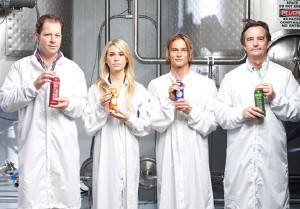In 2011, investment firm associate, Matt Salzberg, and his computer programmer friend, Ilia Papas, decided that they wanted to create a business. After quitting their jobs, they tried to establish several different start-ups, but they were all unsuccessful. It wasn’t until they drew upon their combined love of food and cooking that they found success. As Salzberg stated, they both “liked trying new ingredients, new recipes, new techniques, but [they] found it really inaccessible to cook at home. It was expensive, it was time-consuming and it was difficult to find recipes that [they] trusted.”

Their company, Blue Apron, named after the aprons French chef apprentices wear, was able to solve these common problems associated with cooking and trying new recipes. Blue Apron develops delicious new gourmet recipes for its subscribers to try and creates videos on how to make the recipe. The ingredients needed to make the meal are measured and sent to the user so there is no waste involved. All of the food comes delivered that day in refrigerated boxes. Some examples of recipes for this week are North African-spiced shrimp and couscous or mushroom brown butter cavatelli – food most people wouldn’t dare try to make on their own. Check out their website and other menu options here !
Salzberg and Papas had no experience in the food industry, so they enlisted the help of a family friend, Matthew Wadiak. Wadiak had worked as a wholesaler of truffles and avocados and was familiar with the food industry. He became Blue Apron’s food expert and COO, while Salzberg became the CEO and Papas the chief technical officer. This diverse founding team was key to the company’s success. Each person had very different backgrounds and talents, which allowed the company to pursue more opportunities early in the founding process. It also allowed them to access very different networks in which to market their idea.

Since its start with only some family and friends as customers, Blue Apron has expanded significantly. They now ship more than 5 million meals per month across the United States! After being in business for only 3 years, Blue Apron is worth more than a billion dollars! Clearly, they were able to identify a common problem and provide an easy (and delicious!) solution!


